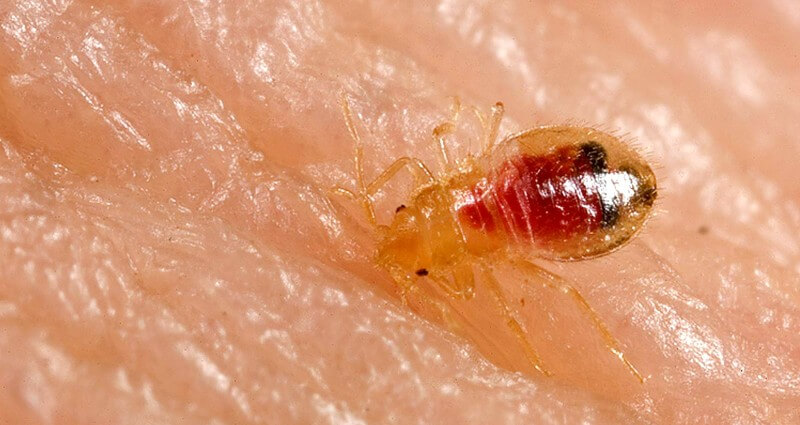Kings Exterminator Cincinnati: Efficient Bug Administration
Kings Exterminator Cincinnati: Efficient Bug Administration
Blog Article
Sorts Of Parasite Control: Which Method Is Right for Your Problem?
When faced with a pest invasion, the selection of a suitable method for bug control is critical in successfully handling the situation. By checking out the numerous types of parasite control techniques readily available, individuals can make enlightened choices customized to their distinct situations, ensuring a more effective and lasting outcome in parasite eradication.
Chemical Bug Control
Chemical bug control includes making use of synthetic or normally derived chemicals to handle and get rid of pest populaces properly. This approach is generally made use of in farming, forestry, and domestic setups to combat a large range of parasites, consisting of weeds, insects, and rats. Using chemical pesticides can offer quick and targeted solutions to pest infestations, making it a popular option for several individuals and companies.
One of the vital benefits of chemical parasite control is its ability to promptly get rid of pests, reducing the risk of damage to plants, residential or commercial property, and human wellness. By making use of particular chemicals that target specific insects, this technique can efficiently control infestations while decreasing injury to beneficial microorganisms and the environment when used correctly.
However, the usage of chemical pest control also raises worries regarding prospective adverse impacts on non-target types, water resources, and human health and wellness. It is critical to comply with safety standards, use chemicals sensibly, and take into consideration alternative pest control methods to reduce these risks and ensure lasting insect monitoring techniques.
Organic Bug Control
Biological pest control, also referred to as biocontrol, utilizes living microorganisms to manage and reduce pest populations normally. This method takes advantage of the power of nature to regulate insects without the demand for synthetic chemicals. Biocontrol can involve the intro of all-natural enemies of the bug varieties, such as microorganisms, bloodsuckers, or predators, to reduce insect populations. By utilizing the pest's natural killers or microorganisms, biological parasite control offers a eco pleasant and lasting solution to pest management.

Mechanical Bug Control
Using physical and hands-on methods to take care of pest populations, mechanical parasite control uses an alternative approach that does not rely upon making use of living organisms or artificial chemicals. This approach includes making use of obstacles, catches, or other gadgets to literally deter or get rid of pests. By obstructing bug entrance points or setting up catches to capture them, mechanical parasite control can effectively lower problems without presenting chemicals right into the environment.
One usual example of mechanical parasite control is the use of mesh displays on doors and windows to avoid bugs from getting in structures. This straightforward yet reliable technique functions as a physical obstacle, keeping pests out while enabling correct air flow. In addition, gadgets like mousetraps, fly swatters, and ultrasonic repellents drop under the mechanical parasite control classification.
While mechanical bug control methods can be labor-intensive and call for normal monitoring and upkeep, they supply a ecologically friendly and sustainable option for managing bug problems. By combining various mechanical methods, homeowner can produce a comprehensive parasite control approach that minimizes dependence on chemical pesticides.
Physical Insect Control

Some typical physical pest control methods consist of making use of barriers such as webs or screens to avoid insect entrance, traps to record and get rid of insects, and hand-picking to physically remove pests from plants or structures. Furthermore, methods like warmth therapies can be used to manage bugs like bed pests by elevating the temperature level to levels that are lethal to the pests.
Physical insect control is specifically helpful in incorporated parasite management (IPM) strategies, where several bug control techniques are integrated for reliable bug monitoring while decreasing using chemicals. By utilizing physical bug control techniques, people can properly deal with bug invasions with marginal environmental influence.
Integrated Bug Management
When executing physical pest control methods as component of insect administration strategies, Integrated Pest Administration (IPM) emerges as a thorough method that Learn More Here leverages numerous methods to efficiently regulate pest populations. IPM concentrates on long-lasting prevention of bugs via a combination of organic, social, physical, and chemical tools tailored find this to specific bug concerns. By incorporating numerous control tactics, IPM aims to reduce the threats related to parasites while also minimizing reliance on chemical solutions.
One trick element of IPM is the focus on surveillance and examining pest populaces to establish the most proper control techniques. This aggressive approach enables very early intervention and targeted techniques, causing extra effective insect management. In addition, IPM advertises ecologically friendly practices by prioritizing non-chemical control approaches and only making use of pesticides as a last resort.
Final Thought

By using the parasite's natural killers or microorganisms, organic pest control provides a ecologically friendly and sustainable solution to pest management. - Kings cincinnati pest control companies
Utilizing hands-on and physical methods to manage bug populaces, mechanical insect control uses a different strategy that does not depend on the use of living organisms or synthetic chemicals.An efficient method to managing parasite populaces without relying on chemical or biological techniques includes the usage of physical bug control methods.When executing physical insect termite control systems control methods as component of bug management approaches, Integrated Pest Management (IPM) emerges as a thorough method that leverages numerous techniques to effectively control pest populations. Chemical insect control entails the usage of pesticides, organic bug control makes use of natural predators, mechanical pest control entails physical barriers, physical parasite control includes capturing or getting rid of bugs, and incorporated bug administration incorporates numerous methods for a holistic approach to pest control.
Report this page